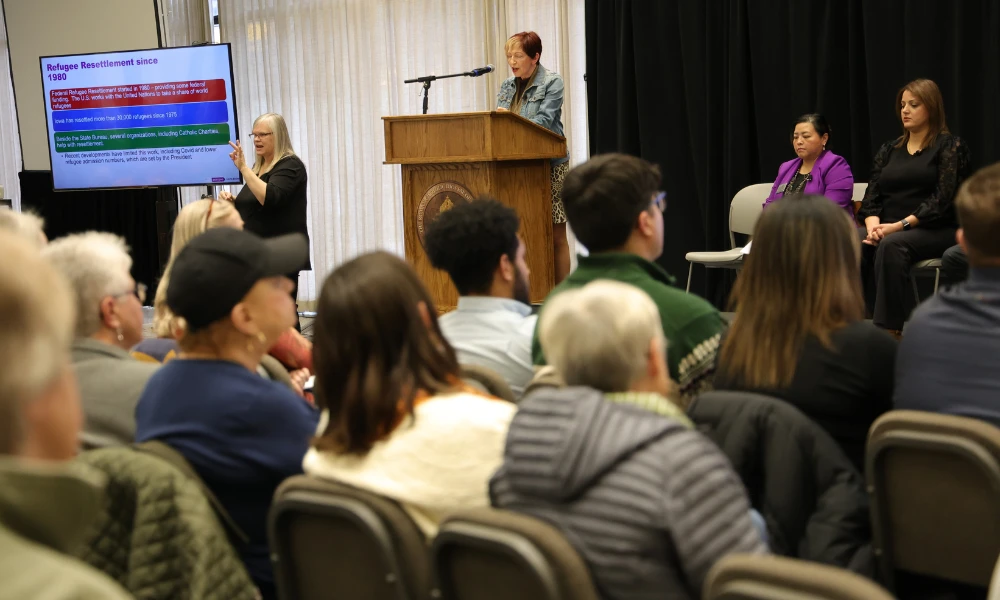Panelists share Iowa’s history of hospitality
February 23, 2025

By Anne Marie Cox, Staff Writer
A panel of immigration experts on Feb. 2 shared the history of immigration in Iowa, pathways to legal status, the refugee vetting process, the current situation for immigrants, and the organizations that serve them.
The discussion was part of a broader, three-part dialogue series created by St. Catherine of Siena Church and Student Center focusing on immigration. The second part will be March 2, when El Paso Bishop Mark Seitz comes to Des Moines for a public presentation at 2 p.m. at Sheslow Auditorium on the campus of Drake University. Bishop Seitz’s diocese borders Chihuahua, Mexico. Having spent years walking with immigrants, working with Texas elected officials, and conversing with border agents, he will share his perspective on immigration.
On March 29 at 10 a.m. at St. Catherine in Des Moines, the dialogue series concludes with a workshop offering individuals and faith communities to learn about the specific needs of refugees and immigrants and consider making a commitment to provide for some of those needs.
Lori Chesser, president of Dentons Davis Brown law firm, shared the early history of Iowa in welcoming immigrants, from the 1850s when the state resisted the Know-Nothing Party and welcomed newcomers to the 1870s, when the state Board of Immigrants was established to recruit people to Iowa. In the 1970s, the state again welcomed newcomers escaping war-torn areas in South Vietnam, Cambodia, and Laos.
Yer Vang, legal director of immigration legal services for Catholic Charities in the Archdiocese of Dubuque, explained federal agencies that work with immigration and the rights that immigrants have.
Dema Abu-Assaf, an immigrant herself and the Refugee Services program manager with Catholic Charities in Des Moines, noted that refugees are a protected class of immigrants, having been vetted and approved for residence in the United States by the federal government. In Fiscal Year 2024, Catholic Charities resettled 374 refugees and protected clients. The agency was expecting to resettle 425 this fiscal year. However, the federal government suspended its refugee resettlement program last month. Catholic Charities had welcomed 121 individuals before the program paused.
To watch their presentations and those of the other panelists, go to stcatherinedrake.org/dialogue-series/